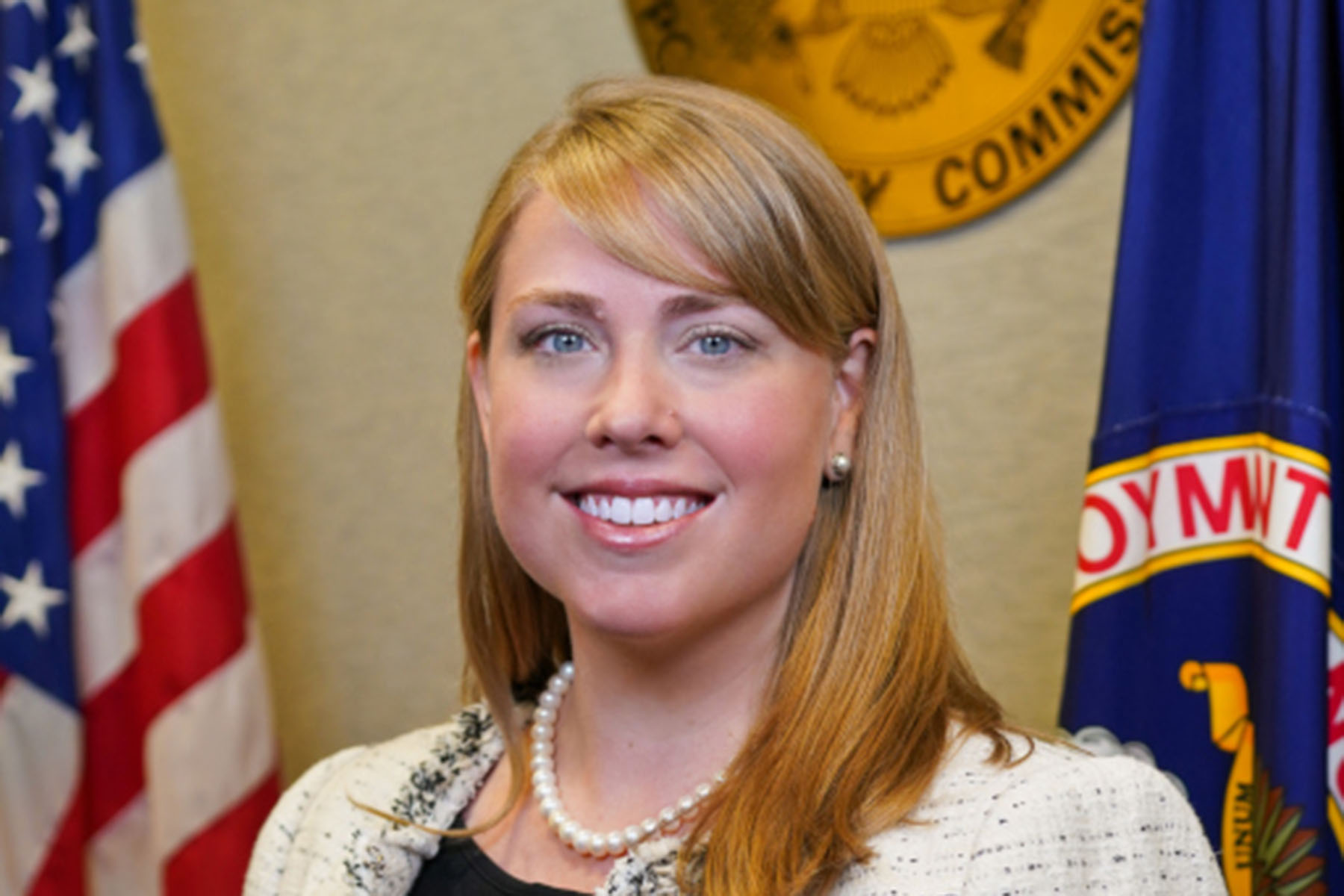When a U.S. Senate panel holds a confirmation hearing on Wednesday for Andrea Lucas to lead the Equal Employment Opportunity Commission, the agency’s former leaders say they will be paying close attention to what she says about EEOC guidance related to pregnancy discrimination and gender identity harassment.
Lucas has served on the commission since 2020, when President Donald Trump nominated her during his first term. In January, he named her acting chair after firing two of three Democrats serving on the five-member commission before their terms ended — a first by a president in the agency’s 60-year history.
With only two of five commissioners remaining, the EEOC has not had the necessary quorum to implement meaningful policy directives during Lucas’ interim tenure. Even still, agency observers said, Lucas, who is expected to be confirmed by the Republican-controlled Senate, has repeatedly indicated that she plans to make it more difficult for pregnant and gender-diverse people to bring civil rights claims related to their employment.
EEOC cases involving trans plaintiffs are already at a standstill, whether their harassment claims are related to their gender identities or not, those familiar with the agency’s caseload told The 19th. Lucas wants to revisit regulations related to enforcement of the Pregnant Workers Fairness Act that were finalized one year ago today. She has also played a prominent role in the president’s efforts to quash diversity, equity and inclusion efforts, or DEI, in workplaces, sending an unprecedented letter to law firms that countered agency procedure. In a public statement released in late May, Lucas said part of the EEOC’s commitment to enforcing Trump’s DEI orders means backing away from cases related to “neutral employment policy or practice” that has “an unequal outcome on employees of a particular race or sex.”
Maya Raghu, a senior adviser to a Democratic EEOC commissioner during the Biden administration, called these cases, known as disparate impact-claims, a “powerful tool that helps uncover and remedy discrimination that isn’t explicit and ensures that everyone has a fair chance to succeed.”
Disparate impact cases are often associated with remedying structural racial discrimination but can also be related to sex, gender and disability. The EEOC only had one open disparate impact case, brought in 2024, challenging hiring policies at Sheetz. The gas station chain screened applicants for criminal convictions, and the agency brought a case due to the disparate impact it had on Black and Indigenous applicants. The EEOC earlier this month moved to dismiss the case, citing Trump’s DEI orders. A worker plaintiff has sought private legal counsel to continue the case.
“Eliminating disparate impact cases, or de-prioritizing them, as this administration is saying, would really take us back to a time when employers could impose policies that unfairly deny opportunities to people of color, women, older Americans and other historically excluded groups without really having to provide a business necessity for the policies,” said Raghu, who is now at the Lawyers’ Committee for Civil Rights Under the Law directing a project on advancing diversity, equity and inclusion.
Lucas has also signaled her disapproval of long awaited anti-harassment guidance that the EEOC approved in April 2024, following the Supreme Court’s 2020 decision in Bostock v. Clayton County. It clarified how the agency would enforce workplace harassment related to “race, color, religion, sex, national origin, age, disability, genetic information.” Lucas voted against it and issued a dissent focused on gender identity, writing that “women’s sex-based rights in the workplace are under attack — and from the EEOC, the very federal agency charged with protecting women from sexual harassment and sex-based discrimination at work.”
Lucas argued that the position taken by the EEOC in the guidance that denying workers access to bathrooms that matched their gender identities or the intentional use of the wrong pronouns could constitute harassment “impinges on women’s (and indeed, all employees’) rights to freedom of speech and belief.” “Biological sex is real, and it matters. Sex is binary (male and female) and is immutable,” she wrote in the dissent.
If Lucas is confirmed, and once a quorum is established, the agency is expected to revisit the harassment guidance. She has already drafted and released changes she would like to see, removing mentions of gender identity. Further, the agency went through its open cases and paused many brought by trans plaintiffs, even when their claims involved harassment unrelated to their gender identity, like disability or race, according to multiple people familiar with the agency’s work.
A federal judge in Texas last month vacated sections of the harassment guidance related to gender identity but the Supreme Court’s 2020 decision in Bostock remains law and the decision is limited in its application.
Former EEOC Commissioner Chai Feldblum, who served from 2010 to 2019, said there are “two problems going on at the EEOC right now” related to gender identity.
“One is if you have a gender-identity claim, our understanding is that they’re not necessarily immediately dismissing those — although I’m sure they’re doing that with a number of them — but they’re just putting it in black holes and not doing anything,” Feldblum explained. “But it’s also being over applied in offices around the country so that even if a transgender person comes in with a disability claim, or they come in with a sexual harassment charge not related to their gender identity, their charge is not being done.”
“Transgender people are being adversely affected, both with regard to gender identity claims and with regard to unrelated claims,” said Feldblum, who earlier this year co-founded the EEO Leadership Group. Feldblum said she initially got the group of former EEOC leaders together to see if they could help represent transgender plaintiffs whose cases were languishing. Ahead of Lucas’ hearing this week, they released a letter responding to her revised harassment guidance.
EEO Leadership Group members said another aspect of the agency’s work that they expect to come up during Lucas’ hearing that would disproportionately affect women is her desire to revisit the guidance related to pregnant workers issued last year.
Lucas also voted against that final rule and released a 16-page dissent. She wrote that while she supported “elements,” she believed the rule established “new accommodation requirements to reach virtually every condition, circumstance, or procedure that relates to any aspect of the female reproductive system.”
While Lucas’ desire to revisit the pregnancy guidance is rooted in her opposition to abortion and related workforce accommodations, “once they reopen it, they can make any changes that a majority agrees on,” noted Karla Gilbride, who was general counsel at the EEOC until February, when she joined the public interest law firm Public Citizen. Gilbride is also a member of the EEO Leadership Group.
Jenny Yang, another former EEOC commissioner and member of the leadership group who now is a partner at the law from Outten & Golden, said that Lucas’ public positions, when combined with her focus on Trump’s DEI efforts and her letter to law firms, indicate that under her leadership, the EEOC would operate very differently than it has in the past.
“Unfortunately, it does appear that Lucas’ priorities are a real retreat from the historic mission of the agency,” Yang said. “I think that she is demonstrating that she’s a full participant in this administration’s effort to intimidate employers from engaging in fully lawful efforts to prevent discrimination.”





